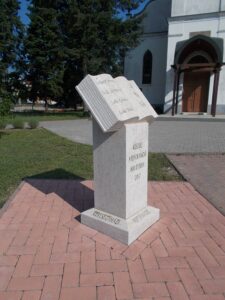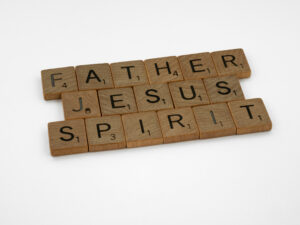By Dr. Don Bierle, FaithSearch President
The apostle Paul identified how you can know whether someone claiming to be a Christian has gone wrong (2 Corinthians 11:4). If they have a:
- Different Gospel (way to be saved);
- Different Jesus;
- Different spirit; or
- Different authority.
In part 1 of this 3-part series, I identified the biblical Gospel (grace alone by faith alone) and discussed the deviations from this in several groups who claim to be Christian. The major departure is the unbiblical addition of human “works” to be saved.
In part 2, I want to address a “different Jesus.” This test points the way to distinguish between genuine Christian groups and those often identified as “cults.”
The Genuine: An Important Unity
The three major divisions within Christianity all agree about Jesus, the object of our faith:
We believe there is one God, eternally existent in three persons: Father, Son, and Holy Ghost. We believe in the deity and humanity of Christ, in His virgin birth, in His sinless life, in His miracles, in His vicarious and atoning death through His shed blood, in His bodily resurrection, in His ascension to the right hand of the Father, in His present rule as Head of the Church, and in His personal return in power and glory.
This description is consistent with all the major creeds of the Christian faith, including the Apostles’ Creed, the Nicene Creed, and the Athanasian Creed. The apostle Paul established this truth in his writing to the Corinthian church:
By the grace God has given me, I laid a foundation… For no one can lay a foundation other than the one already laid, which is Jesus Christ.
1 Corinthians 3:10-11
Protestants, Catholics, and Orthodox are united on this.
The Counterfeit: A Different Jesus
A heretical group, the Gnostics, had proclaimed a counterfeit Jesus already in the first and second centuries. They challenged the incarnation (“And the Word [God] became flesh” – John 1:14) by alleging that Jesus the man was a different being than the spirit Christ. According to this view, the physical man Jesus died and only the spirit Christ was resurrected. The apostle John, living nearly to the end of the first century, was especially confronted by this cult. His answer is recorded in 1 John 2:22, “Who is the liar but the one who denies that Jesus is the Christ?” He adds that “Jesus Christ has come in the flesh” and “Jesus is the Son of God” (4:2, 15).
This heresy has continued to the present day, though not exactly like Gnosticism in detail. The Jehovah’s Witnesses (JW) teach that “the man Jesus is forever dead but only an invisible spirit Son was resurrected.” Likewise, Christian Science says, “The spiritual Christ was infallible; Jesus, as material manhood, was not Christ.” Millions of people today, claiming to be Christians, are following this false teaching.
Another group, Mormonism, has a different Jesus also. Their Jesus is not eternal but “was a spirit-being conceived of physical mother and father gods in the preexistence.” He is not one person of the Trinitarian God but “a normal man who progressed to godhood.”
In stark contrast, the Bible says, “Jesus Christ is the same yesterday, and today, yes and forever” (Hebrews 13:8). The apostle Paul, by the inspiration of the Holy Spirit, wrote that “in Him [Jesus] all the fulness of Deity dwells in bodily form” (Colossians2:9).
Jehovah’s Witnesses also share the view that Jesus Christ was not eternal but rather was created by Jehovah. Neither, they claim, is he one person of a Trinitarian God. The problem with the Mormons and JWs is that they say they believe in “Jesus,” but their description of him is not the Jesus of the Bible and cannot save us from sin and death. With these groups, we must insist on definitions because they say the same words as in the Bible, but they mean something else entirely.
Solus Christus (Christ Alone)

As described in part 1 of this series, there have been and still are some significant departures from salvation by grace alone through faith alone by groups who claim to be Christians. The Mormons and JWs have departed further from Christ alone (which is defined in the Bible). The apostle Paul minced no words regarding the importance of this truth: “By the grace God has given me, I laid a foundation… For no one can lay a foundation other than the one already laid, which is Jesus Christ.”
Hymn writer Robert Lowry made it clear why it is so important to get this right:
What can wash away my stain?
Nothing but the blood of Jesus;
What can make me whole again?
Nothing but the blood of Jesus.O! precious is the flow
“Nothing but the Blood of Jesus,” by Robert Lowry, 1876 (public domain).
That makes me white as snow;
No other fount I know,
Nothing but the blood of Jesus.
In part 3 of this series, I will determine whether there are “Christians” who have a “different spirit” than the Holy Spirit or a “different authority” than the Bible.




